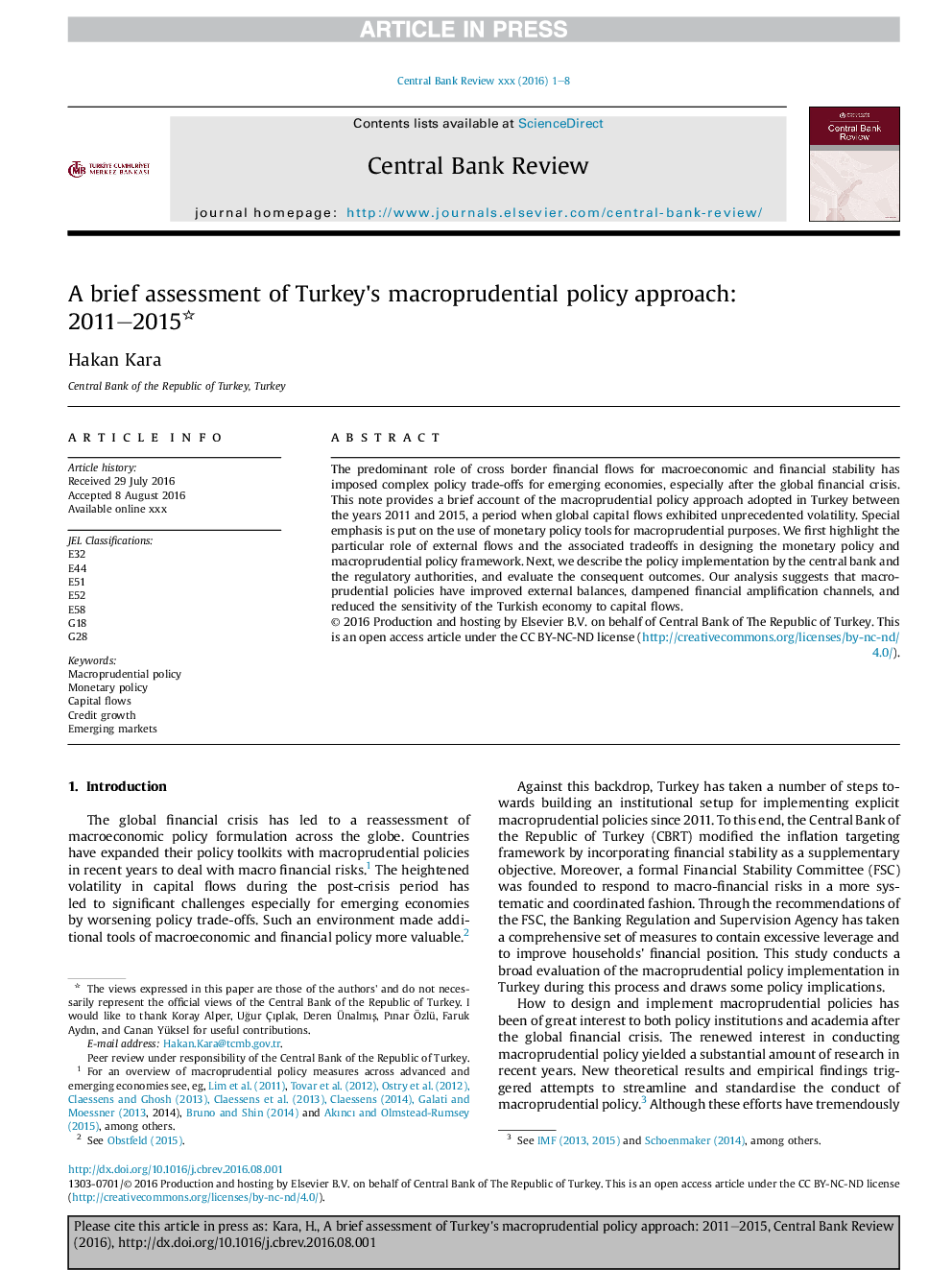| Article ID | Journal | Published Year | Pages | File Type |
|---|---|---|---|---|
| 7396199 | Central Bank Review | 2016 | 8 Pages |
Abstract
The predominant role of cross border financial flows for macroeconomic and financial stability has imposed complex policy trade-offs for emerging economies, especially after the global financial crisis. This note provides a brief account of the macroprudential policy approach adopted in Turkey between the years 2011 and 2015, a period when global capital flows exhibited unprecedented volatility. Special emphasis is put on the use of monetary policy tools for macroprudential purposes. We first highlight the particular role of external flows and the associated tradeoffs in designing the monetary policy and macroprudential policy framework. Next, we describe the policy implementation by the central bank and the regulatory authorities, and evaluate the consequent outcomes. Our analysis suggests that macroprudential policies have improved external balances, dampened financial amplification channels, and reduced the sensitivity of the Turkish economy to capital flows.
Keywords
Related Topics
Social Sciences and Humanities
Economics, Econometrics and Finance
Economics, Econometrics and Finance (General)
Authors
Hakan Kara,
